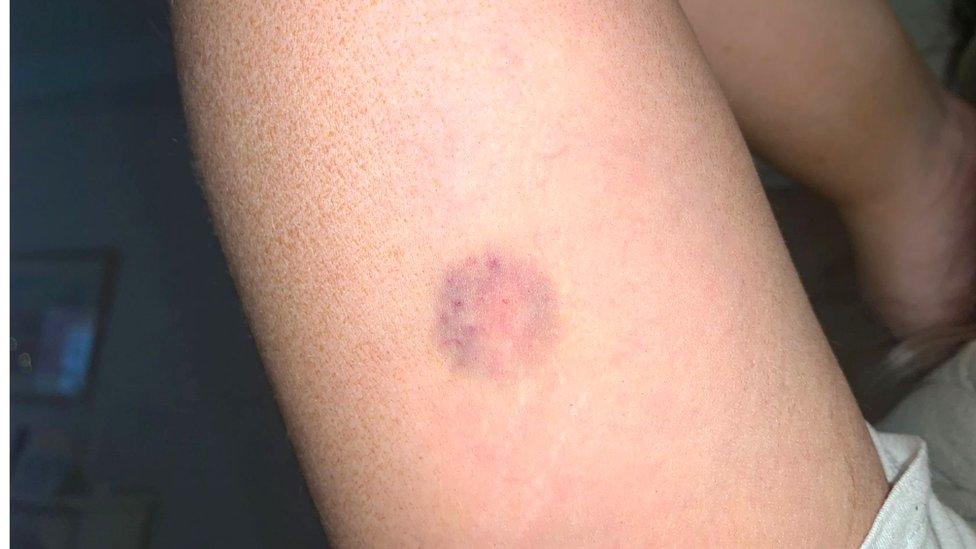No evidence of spiking by injection, say police
- Published

Most of the incidents complained about were said to have taken place in nightclubs
Police Scotland have found no evidence to back up a surge in claims of spiking by injection.
Almost 150 people came forward over 12 months saying they could have been drugged by needles in nightclubs.
Complaints soared after media coverage in October last year, with almost 60 made in the first week of November.
Police chiefs were told at a Scottish Police Authority (SPA) meeting that between 1 October 2021 and 30 October 2022, there had been no proven cases.
Spiking by injection is when a needle is used to inject drugs into a person without their knowledge or consent. It is a criminal offence.
Some of those who filed the reports in Scotland said they had been left feeling unwell after nights out, and had found what they believed to be puncture marks on their bodies.

People complained of having red puncture marks on their bodies
However, a report presented at the SPA meeting on Thursday confirmed that there were currently no physical witnesses to an incident of spiking via injection in Scotland. It also found:
In the period covered, there were 601 crimes relating to spiking recorded
In 31.3% of reports the victim suspected they had been spiked via injection
The alleged incidents were mainly reported by women aged 16-18 and a high proportion of those were students
Of the 601 crimes, 122 were reclassified as "no crime" after investigation and review, leaving 479 recorded. Of those, 7.3 per cent - 355 cases - involved associated criminality, 32 of which were sexual and three of which were theft
The SPA report said there had been no cases of "needle spiking" over this period and only four spiking cases in total resulted in someone being charged.
Assistant Chief Constable Bex Smith said: "We understand people continue to be concerned about spiking but Police Scotland, working with our partners, has carried out a significant amount of action to increase awareness of the risk, to tackle it and to protect people on a night out.
"While we saw an increase in reports and investigations last year, the number of reports has reduced significantly. However, we do continue to investigate reports from people having been 'spiked'."
She added: "Our focus remains on keeping people safe and identifying offenders who carry out an assault in this way."
The meeting heard that a review of the strategies, processes and governance of this crime type was conducted due to the increased number of reports and that the force was helping create a national picture after incidents increased across the UK.
Local policing divisions were encouraged to collaborate with universities and colleges in advance of freshers week to spread awareness of spiking. They promoted initiatives such as bystander awareness and Ask for Angela, a code phrase which lets staff know an individual needs help and feels unsafe.
The update report concluded: "Police Scotland will continue to thoroughly investigate all reports of spiking, while simultaneously engaging with partners to understand the impact, ensuring the preventative message continues.
Such messaging was reiterated in advance of and throughout freshers week 2022, when reports of spiking were noted as significantly lower compared to the previous year."